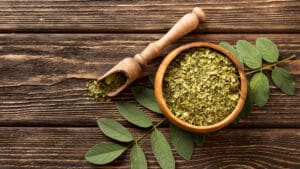Something remarkable has happened in America’s drugstores. Between the aspirin and the vitamins, you’ll now find CBD oils, creams, and capsules—products that seemed destined to remain in hippie health shops forever. The wellness industry’s former outsider has become its newest darling, and the transformation happened faster than almost anyone predicted.
Market watchers expect global CBD sales to rocket past $47 billion by 2028. That’s not incremental growth—it’s a complete market transformation. CVS, Walgreens, and Kroger have all embraced CBD products in the past year, treating cannabidiol items like any other wellness category. Five years ago, this would’ve been unthinkable.
Alongside major chain stores, specialized retailers like CBD Shop have emerged to meet growing consumer demand, offering curated selections and personalized guidance that help newcomers navigate the expanding world of CBD products. These dedicated outlets fill a crucial educational gap that big-box retailers often can’t address.
The Science That Changed Everything
When the FDA approved Epidiolex for treating severe epilepsy, everything changed overnight. The approval demonstrated that cannabidiol could pass through the same rigorous pharmaceutical testing required of any serious medication. For an industry desperately seeking credibility, this was the breakthrough moment that mattered most. Public perception shifted almost immediately.
Research institutions took notice. Top-tier universities began funding serious cannabinoid studies, with academic medical centers investigating whether CBD could help with PTSD, chronic pain, and neurodegenerative conditions. Scientists still insist they need more comprehensive data, but the research momentum matters. The Brightfield Group found that 60% of Americans now recognize CBD products, and roughly one-third have tried them. Those numbers were unimaginable just a few years back.
A Product For Every Preference
The first wave of CBD products was pretty limited—mostly just oils and tinctures that people took with droppers. Today’s market looks completely different. Walk into a convenience store and you’ll find CBD sparkling water chilling in the cooler. Coffee shops serve CBD lattes. Sephora stocks CBD face masks alongside high-end serums.
Beauty companies went all-in on the ingredient, formulating premium skincare lines around CBD’s supposed anti-inflammatory properties. The pet market exploded too, with owners buying CBD treats to calm nervous dogs or ease their aging cats’ joint pain. All these different formats serve a real purpose—they bring CBD to customers who’d never dream of using those original dropper bottles.
The Messy Regulatory Reality
Here’s where optimism meets frustration. The 2018 Farm Bill legalized hemp-derived CBD federally, but that created more questions than answers. State regulations differ wildly. According to the FDA, putting CBD into food products or marketing it as a dietary supplement without approval breaks federal law. Yet walk into any health food store and you’ll see exactly those products lining the shelves. Companies trying to do business in multiple states face a compliance nightmare.
International markets complicate matters further. Canada’s cannabis legalization created clearer rules for CBD than America’s contradictory system. European countries each handle CBD differently, forcing companies with global ambitions to become regulatory experts.
Growing Pains Ahead
The industry still struggles with serious issues. Plenty of consumers mix up CBD and THC in their minds. Sketchy brands slap wild health claims on their packaging. Product quality swings wildly depending on which manufacturer you choose. Third-party lab testing and certificates of analysis have become the only reliable way to separate legitimate products from worthless junk.
But despite these challenges, CBD’s mainstream moment looks sustainable. Better extraction methods and personalized formulations are coming. More research will provide clearer guidance on benefits and appropriate uses. The CBD market has completed its journey from fringe experiment to ordinary wellness product—and there’s no going back.





